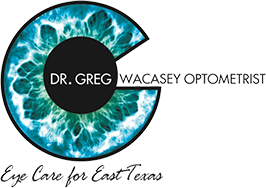
After a long, cold winter, everyone looks forward to spring. Along with blue skies, that’s when the outside temperature starts to warm up. It’s also the time of the year when the trees begin to bud and the flowers bloom. Overall, spring is a wonderful season. However, people with eye allergies might disagree because this same season takes its toll.
Almost 25 million people in the U.S. alone deal with seasonal eye allergies. So, if you have this problem, you’re in good company. However, that doesn’t mean you have to struggle every day with the uncomfortable symptoms. Instead, you can battle eye allergies simply by knowing how.
What Are Eye Allergies?
Officially called allergic conjunctivitis, eye allergies are rather common. Usually, they’re connected with pollen and other outdoor allergens. However, other things can trigger this issue, such as pet dander, dust, smoke, and even certain foods and perfumes. Some people even have a reaction to insect bites, cosmetics, and medication.
Simply put, eye allergies occur as the body’s immune system reacts to an irritant or allergen. Once that comes into contact with the eyes, mast cells release various substances, such as histamine, to fight it off. In response, the eyes start to water, itch, swell, and turn red.
Unpleasant Symptoms
Regardless of the cause of your eye allergies, you probably suffer from the following symptoms:
Swollen, red, and itchy eyes
Sensitivity to light and glare
Significant burning sensation
Watery eyes
Especially when seasonal, you could also experience a runny or itchy nose. In addition, you might develop a sore throat, headache, bouts of sneezing, and a stuffy nose. Although they’re not harmful, these symptoms can make a person feel miserable.
Getting Relief
Keep in mind that in addition to the potential triggers mentioned, some people react to the chemicals in eye drops. So, treating eye allergies with over-the-counter medication may or may not benefit you. That’s why it’s important to talk to an eye doctor who can prescribe the appropriate drops if necessary.
If you think you have eye allergies, there’s no reason to suffer in silence. Instead, schedule an appointment with an ophthalmologist. Using a slit-lamp microscope, they can determine if conjunctivitis is or isn’t the problem. With a firm diagnosis, they’ll offer several treatment options. Some of these include:
Avoiding any known triggers
Keeping the windows in your home closed, especially during the mid-morning and early evening hours when pollen reaches its peak
Staying inside on windy days
Wearing eyeglasses or sunglasses when outdoors
Maintaining a humidity level in your home between 30% and 50%
Washing the bedding more often with hot water
Cleaning the floors and dusting furniture more often
Bathing your pets weekly
Using artificial tears prescribed by an eye doctor to relieve irritation and dryness
Taking a decongestant to reduce the symptoms of eye allergies
Along with those treatment options, your eye doctor might also suggest oral antihistamines or steroid eye drops if you have more severe symptoms.
To schedule an appointment to have your eyes checked, call Dr. Greg Wacasey in Longview, Texas, at 903-403-2020 at the first sign of eye allergies.









